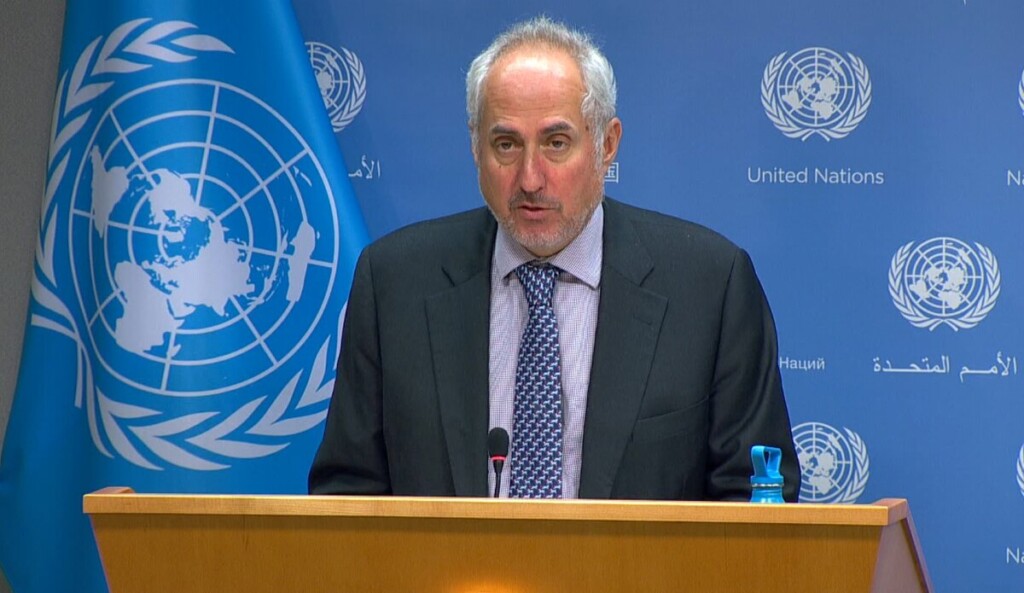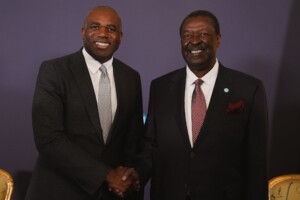UN: Nairobi parallel government plans will ‘destabilise Sudan’

UN Secretary-General’s spokesperson, Stéphane Dujarric (File photo: UN)
UN Secretary-General’s spokesperson, Stéphane Dujarric, warned that any attempt by the paramilitary Rapid Support Forces (RSF) and allied groups to establish a parallel government would escalate Sudan’s crisis and deepen divisions. Speaking at a press briefing yesterday, he cautioned that such a move would fuel tensions, undermine Sudan’s sovereignty, and further destabilise the country.
His remarks came as political, civil, and armed groups convened in Kenya’s capital of Nairobi on Tuesday to sign a political charter for a rival governing body in areas controlled by the RSF.
The talks in Nairobi brought together key figures, including SPLM-N leader Abdelaziz El Hilu, RSF Deputy Commander Abdelrahim Dagalo, and Sudan Revolutionary Front Chairman El Hadi Idris, who also leads the newly formed opposing faction of the Tagadom coalition.
The signing of the proposed charter, originally set for 18 February, has been postponed to 21 February to finalise details.
“We yet again renew our call for an immediate cessation of hostilities to spare the Sudanese people any further suffering,” Dujarric added.
Dujarric reiterated the UN’s call for an immediate cessation of hostilities and urged all parties to prioritise Sudan’s unity.
Sovereignty Council
Sudan’s Sovereignty Council and Cabinet approved amendments to the country’s constitutional framework on Wednesday, signalling a shift in governance structures.
Following the October 2021 coup, Lt Gen Abdelfattah El Burhan had already altered key provisions of the constitutional document, particularly those concerning the power-sharing agreement with civilian forces.
The latest amendments further reshape Sudan’s governance by increasing the number of Sovereignty Council members from six to nine, granting the military six of those seats. The reforms also remove all references to the RSF, consolidating authority under a single “Supreme Commander of the Regular Forces.”
The amendments maintain the 300-member Legislative Council but keep legislative authority with the Sovereignty Council and Cabinet until its formation.
The government also reduced the number of ministries from 26 to 16, while preserving seats for signatories of the 2020 Juba Peace Agreement. The transitional period is set at 39 months from the date of signing.
In a separate move, the government announced the formation of a special committee to examine Kenya’s recent stance on Sudan, following Nairobi’s hosting of a conference to formalise the establishment of a parallel government.











 and then
and then